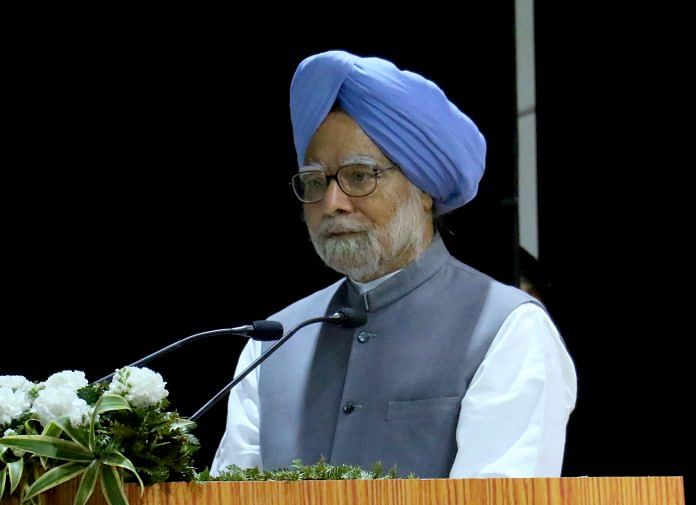The idea of picking domain experts was endorsed by the first Administrative Reforms Commission in the 1960s. Several experts since have been inducted into government.
New Delhi: The Narendra Modi government has decided to throw open 10 joint secretary positions in various ministries and departments to private sector specialists. It isn’t a novel idea, though.
Several experts in the past too have been inducted into governments as secretaries and in senior administrative positions. Inviting private sector talent into the administration has been tried by previous governments, some even as early as the 1960s.
The concept of picking domain experts was endorsed by the first ARC in the 1960s. It was formally recommended in reports submitted by the second Administrative Reforms Commission (2008) and the sixth Central Pay Commission (2006).
Industrial Management Pool
Talking to ThePrint, former Delhi chief secretary Ramesh Narayanaswamy said lateral entry was attempted as early as the 50s and 60s.
“There was a management pool that facilitated sector specialists to be selected for induction into the government and they were posted in organisations requiring them,” he said.
“So, the concept of lateral entry is old. But out of the many secretaries who have served in the government of India, such cases were few,” said Narayanaswamy.
“The position of joint secretaries has been advertised for the first time to the private sector, but I feel such recruitments should be done by a constitutional authority like the UPSC and not through a selection committee headed by any officers, as the UPSC also makes selections for recruitment on contract,” he said.
As Narayanaswamy said, several ‘outsiders’ have served in crucial administrative positions in the central government in the past across governments, a majority of them being economists.
Noted technocrats like Mantosh Sondhi and DV Kapur had served as secretaries to government of India. While Sondhi was brought from Bokaro Steel and had served as secretary of heavy industries, Kapur, a former chairman and MD of NTPC, was secretary to the government in the Ministries of Power, Heavy Industry and Chemicals & Petrochemicals during 1980-86.
MA Wadud Khan is yet another example. Khan, a former chairman of TOMCO, served as the steel secretary in the government, after serving as the first chairman of SAIL.
Here are some others who stood out:
Manmohan Singh
The former prime minister joined the P.V. Narasimha Rao government as finance minister in 1991 after holding crucial administrative positions such as the secretary in the department of economic affairs, chief economic advisor and RBI governor. A doctorate from Oxford University, Singh had worked with the United Nations before he began his bureaucratic career.
Montek Singh Ahluwalia
Said to be brought into the government by Singh, Ahluwalia too held top administrative positions in the central government that were traditionally held by civil servants. Ahluwalia, who had worked in the World Bank, served as the finance secretary, after holding important administrative positions in the Centre, such as special secretary to prime minister, commerce secretary and secretary in the department of economic affairs. He also served as the deputy chairman of the Planning Commission from 2004 to 2014.
I.G. Patel
Former RBI governor Indraprasad Gordhanbhai Patel was another outsider who was assigned various administrative roles in the government. An economist, and the first Indian to hold the office of director at the London School of Economics, Patel served in crucial policymaking portfolios such as the chief economic advisor and economic affairs secretary in the finance ministry.
Vijay Kelkar
Kelkar was finance secretary in the government of India in 1988-89. He was assigned the position of the chairman of the Finance Commission until January 2010 and was an advisor to the minister of finance between 2002 and 2004.
Rakesh Mohan
Former RBI deputy governor, Mohan served as economic affairs secretary in the finance ministry during the UPA government. He was also the chief economic adviser to the government. Prior to that, he was adviser to several ministries in the government.
Lovraj Kumar
Kumar, an engineer, is known as the person behind the Indian Petrochemical Corporation Ltd and remembered by his colleagues for spearheading successful search of oil in the Indian oilfields. He served as petroleum secretary, and then steel secretary in 1984 before superannuating.
R.V. Shahi
In 2002, Shahi was brought in by then power minister Suresh Prabhu from the private sector and appointed power secretary. Shahi, who came with decades of experience in the power sector, headed power utility BSES Ltd. He had spent 10 years with the SAIL and then 16 years with the NTPC Ltd where he was director (operations).
M.S. Swaminathan
Popularly known for his role in the Indian green revolution, geneticist M.S. Swaminathan served as the secretary in the agriculture ministry in 1979-80. He was one of the specialists inducted from outside the civil servants group. Prior to the role, the plant geneticist had also served as the director general in Indian Council of Agricultural Research.



